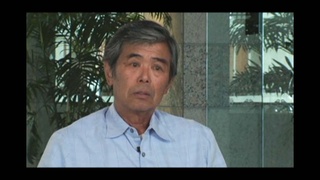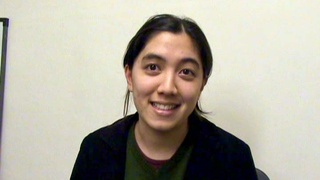Interviews
Stripped of Pride
In fact, the Sansei were the whole LTPRO. They came from the 1960s, 1970s, early 1970, during the Vietnam War. They, you know, they had organizations, grassroots organizations, that were anti-war and they were for the African American Civil Rights movement. And all of these Sansei who were going to the university and fighting for ethnic, because of the African Americans, they were coming around with "black power "and "black is beautiful" and the Asians, because we were in camp -- Japanese Americans especially -- we weren't necessarily aggressive. We were like somebody said, like rape victims, you know, you didn't want to talk about it, they were ashamed because they were in camp.
You can imagine walking through a column of MPs, how you gonna feel? You're gonna feel like a prisoner or somebody that's not a part of the society. And then you go into camp and you have these guard towers, guns pointing down, and, you know, fences all around you. I mean, it makes you feel like you don't want to be Japanese American, because everybody in camp looks like you.
So, you know, the whole psychology of the thing, it kind of broke down the Japanese American pride. And basically what it did was break up the, disperse the community to a point where you don't have a community, a united community. This was a hard part of redress struggle, to make them come out, to become pride, proud of themselves as Japanese Americans.
Date: September 13, 1997
Location: California, US
Interviewer: Larry Hashima
Contributed by: Denshō: The Japanese American Legacy Project.
Explore More Videos

Didn't have rights that whites had
(1922–2014) Political and civil rights activist.

Response to loyalty questionnaire
(b.1909) Nisei from Washington. Incarcerated at Tule Lake and Minidoka during WWII. Resettled in Chicago after WWII

Understanding Sansei taiko (Japanese)
(b.1943) Shin-issei grand master of taiko; founded San Francisco Taiko Dojo in 1968.

Soukou Bayashi: Dedicated to the Issei (Japanese)
(b.1943) Shin-issei grand master of taiko; founded San Francisco Taiko Dojo in 1968.

The performing arts not for Nisei
Senshin Buddhist Temple minister and co-founder of Kinnara Taiko.

Sense of lineage between Sansei and Issei through Taiko
Co-founder and creative director of San Jose Taiko

Feeling angry upon reading of Supreme Court case, 'Korematsu v. United States'
(b. 1955) Lawyer

Is 'Korematsu v. United States' still a threat to American civil liberties?
(b. 1955) Lawyer

Not fully understanding parents' World War II incarceration while growing up
(b. 1946) Lawyer



Japanese language is the important aspect to keep identity (Spanish)
Sansei Argentinean



Prevailing Within the System
(1923–2006) Community activist. Co-founded the Manzanar Committee
